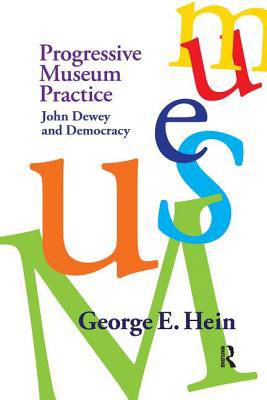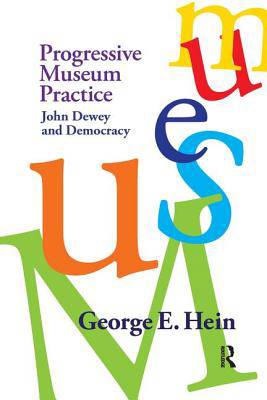
- Afhalen na 1 uur in een winkel met voorraad
- Gratis thuislevering in België vanaf € 30
- Ruim aanbod met 7 miljoen producten
- Afhalen na 1 uur in een winkel met voorraad
- Gratis thuislevering in België vanaf € 30
- Ruim aanbod met 7 miljoen producten
Zoeken
€ 74,95
+ 149 punten
Uitvoering
Omschrijving
Preeminent museum education theorist George E. Hein explores the work, philosophy, and impact of educational reformer John Dewey and his importance for museums. Hein traces current practice in museum education to Dewey's early 20th-century ideas about education, democracy, and progress toward improving society, and in so doing provides a rare history of museum education as a profession. Giving special attention to the progressive individuals and institutions who followed Dewey in developing the foundations for the experiential learning that is considered best practice today, Hein demonstrates a parallel between contemporary theories about education and socio-political progress and, specifically, the significance of museums for sustaining and advancing a democratic society.
Specificaties
Betrokkenen
- Auteur(s):
- Uitgeverij:
Inhoud
- Aantal bladzijden:
- 255
- Taal:
- Engels
Eigenschappen
- Productcode (EAN):
- 9781598744811
- Verschijningsdatum:
- 15/07/2012
- Uitvoering:
- Paperback
- Formaat:
- Trade paperback (VS)
- Afmetingen:
- 150 mm x 226 mm
- Gewicht:
- 408 g

Alleen bij Standaard Boekhandel
+ 149 punten op je klantenkaart van Standaard Boekhandel
Beoordelingen
We publiceren alleen reviews die voldoen aan de voorwaarden voor reviews. Bekijk onze voorwaarden voor reviews.











